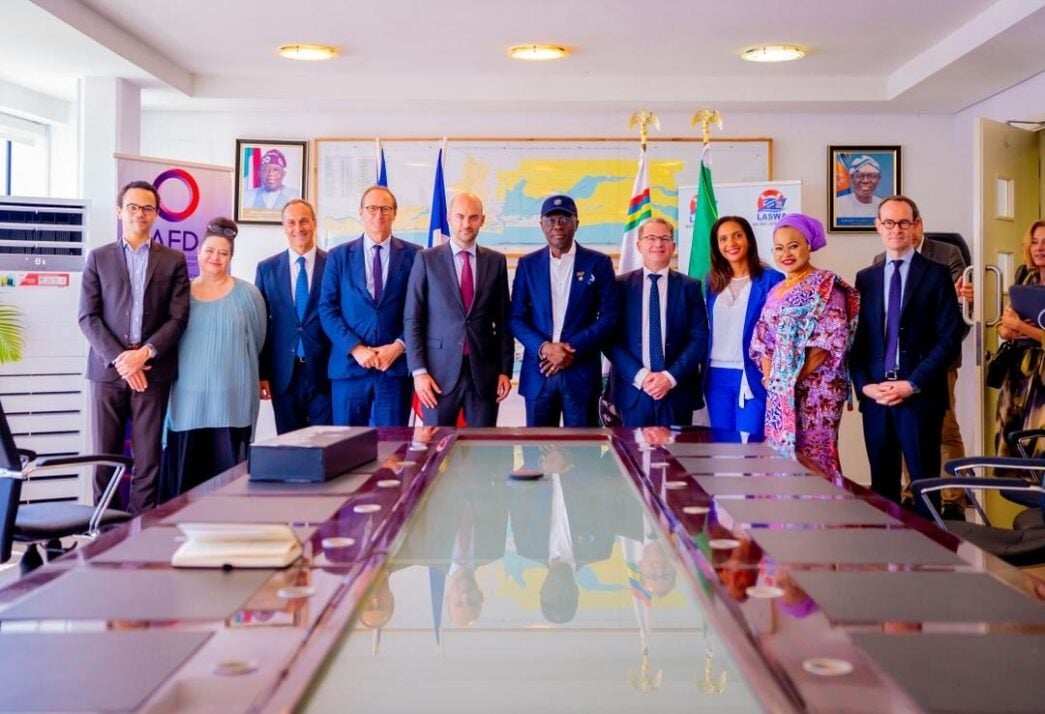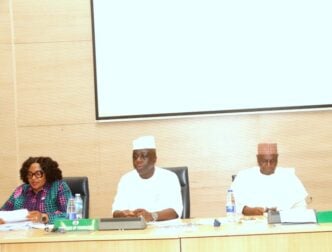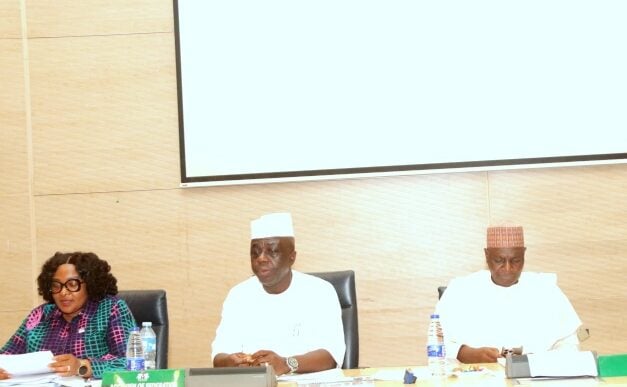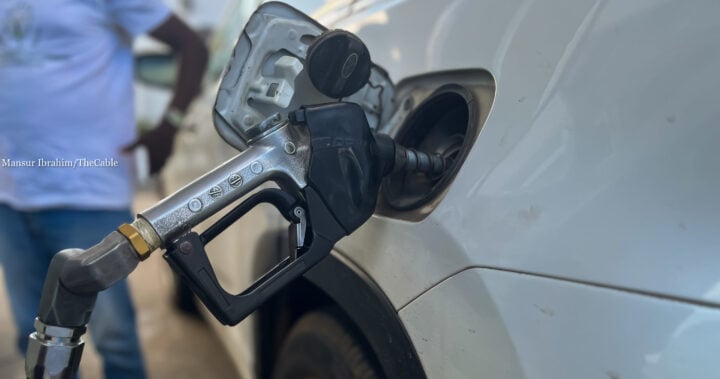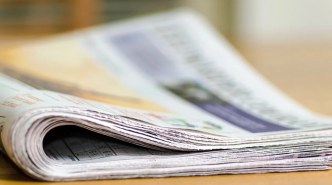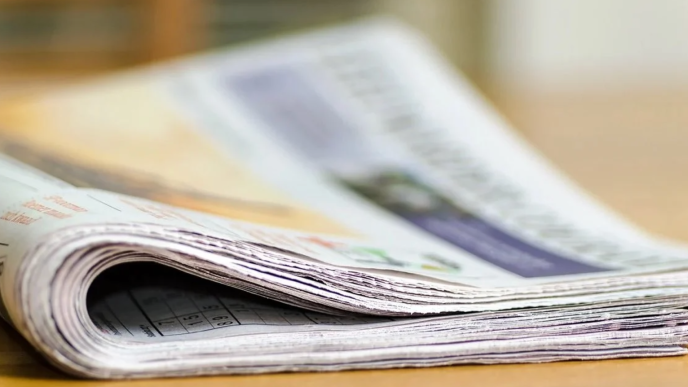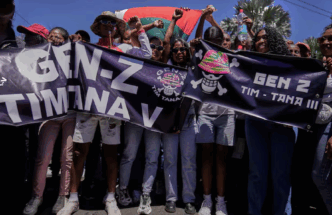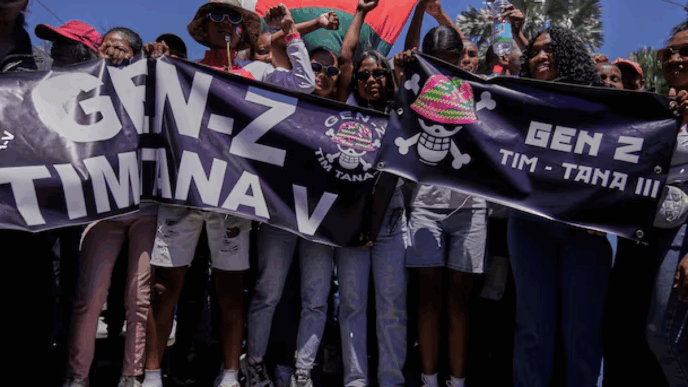Babajide Sanwo-Olu, governor of Lagos, has launched the “Omi Eko” project, an initiative designed to transform water transportation and advance the state’s blue economy.
Speaking on Friday at the unveiling of 78 electric ferries for the ‘Omi Eko’ project, Sanwo-Olu said the initiative marked a new chapter in Lagos’ transport story, underscoring his administration’s commitment to sustainable and modern urban mobility.
‘Omi Eko’ is a Yoruba phrase that can be loosely translated as ‘the water of Lagos’.
The governor described the project as a bold declaration of Lagos’ resolve to build an efficient, affordable, and environmentally responsible ferry system.
Advertisement
“Our story as Lagosians has always been written on water,” Sanwo-Olu said.
“But history is not just what we inherit; it is also what we choose to create. Today, we are launching not just a project but a vision to redefine urban movement.”
He said the initiative reflects innovation and resilience, combining technology, smart design, and environmental consciousness to optimise the city’s waterways.
Advertisement
“Our goal is simple but profound — to make movement seamless, to make the air cleaner, and to transform our waterways into channels of prosperity,” the Lagos governor said.
“Water is life, water is connectivity, and water is the soul of Lagos. It nourishes us, shapes our identity, and carries us into the future.”
Sanwo-Olu said “Omi Eko” complements his THEMES Plus agenda, which integrates rail and road expansion to create a balanced, multimodal transport system.
He added that the government has recently expanded its ferry fleet, strengthened waterway security, and inaugurated Africa’s first Waterways Monitoring and Data Centre to improve efficiency and safety.
Advertisement
‘YOUNGER LEADERS ARE PROVING THEIR WORTH’
Babatunde Fashola, former governor of Lagos, commended Sanwo-Olu for sustaining the state’s vision of an integrated transport system that connects roads, rail, and waterways.
Fashola said the project shows that younger leaders, when given the opportunity, can deliver transformative governance outcomes.
“What we are witnessing today is the continuation of a journey that started decades ago — a journey of service and mentorship,” Fashola said.
Advertisement
“Young people like Damilola Emmanuel (LASWA MD), who have been entrusted with public responsibility, have shown commitment and competence.
“I must commend the governor and his team for deepening the intermodal transport system of Lagos.”
Advertisement
He praised the partnership between Lagos and the French Development Agency (AFD), noting that the collaboration reflects long-standing trust and results-orientated cooperation.
“For those who ask why we always engage French partners, it is because when they commit, they deliver — and this project is another testament to that partnership,” Fashola said.
Advertisement
AFD, EU COMMIT FUNDS
The project, being implemented by the Lagos State Waterways Authority (LASWA), is backed technically and financially by European partners—including a €130 million loan from the French Development Agency (AFD), a €170 million loan from the European Investment Bank (EIB), and a €60 million grant from the European Union (EU).
Advertisement
Jean-Noël Barrot, France’s minister for Europe and foreign affairs, said the partnership underscores Lagos’ leading role in adopting sustainable and innovative mobility solutions across Africa.
“Through Omi Eko, Nigeria, with the support of France and the EU, is leading the way in putting innovative and sustainable mobility at the service of people’s needs, at the heart of Lagos, Africa’s largest city,” Barrot said.
Gautier Mignot, the EU ambassador to Nigeria, said Lagos is setting a benchmark in the implementation of global gateway projects across the continent.
“Nigeria and Lagos are spearheading the execution of Global Gateway projects, showing the level of ambition that can be achieved both in size and sustainability,” Mignot said.
“As the Lagos–Abidjan corridor remains a key area for Global Gateway intervention, we look forward to expanding sustainable connectivity in the ECOWAS region and beyond.”
The plan will see the deployment of 78 high-capacity electric ferries, digital ticketing systems, intelligent terminals, and enhanced safety facilities.

